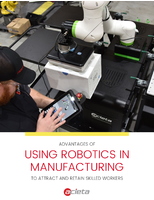IPC urges members to join balloting group for new IEEE standards.
Share:
Press Release Summary:
IEEE's 1680.2 Draft Standard for Environmental Assessment of Imaging Equipment and 1680.3 Draft Standard for the Environmental Assessment of Televisions will go to ballot from July 16-August 15, 2010. Calling for manufacturers to adhere to 115 criteria, standards will impact entire electronics manufacturing supply chain. To voice its concern, IPC urges members to join ballot to ensure both standards maintain IEEE's tradition of technically and scientifically based standards.
Original Press Release:
IEEE Standards on Environmentally Preferable Electronic Equipment Will Impact Entire Electronics Manufacturing Supply Chain - IPC Urges Industry Members to Get Involved in the Ballot
WHAT
Two IEEE standards on setting criteria for environmentally preferable electronic equipment will soon go to ballot: 1680.2 Draft Standard for Environmental Assessment of Imaging Equipment and 1680.3 Draft Standard for the Environmental Assessment of Televisions. Although technically voluntary, these standards, under the Environmentally Preferable Electronics Assessment Tool (EPEAT) umbrella of standards, become de facto regulations due to President Obama's Executive Order 13514 Federal Leadership in Environmental, Energy, and Economic Performance that requires all government procurement to be certified to EPEAT.
While these two standards apply to imaging equipment and televisions, their impact on the electronics industry will be much broader, setting virtual standards for "environmental" electronics throughout the supply chain as well as establishing precedent for future IEEE EPEAT standards. The criteria in both standards cover all aspects of the product from the chemicals contained in them to how they are disposed. IPC is concerned that:
o Both standards expand upon the current RoHS Directive and REACH Regulation requirements by eliminating exemptions and removing SVHCs from products.
o Both contain criteria to remove all halogens, including Tetrabromobisphenol-A (TBBPA), the most common flame retardant used in printed boards.
o Both include a criterion for manufacturers to inventory more than 100 substances in their products.
o Neither requires any assessment of whether restricted substances will or can be replaced with substances that are better for human health and the environment.
o Both include a total of 115 criteria. In order to get EPEAT certification at the basic level, a product must meet ALL required criteria. Although 58 criteria are optional, they must be met in order for a product to achieve a level above the very basic.
Industry members must participate in the balloting process to ensure that these standards maintain IEEE's tradition of technically and scientifically based standards.
WHY
The standards have been developed by only a small sector of the electronics industry. Given the standards' widespread impact, broader involvement from all segments of the industry is critical to ensure that the standards represent the needs of the entire electronics industry.
WHEN
The last day to join the balloting group is August 15, 2010. Although the balloting process is complex, it should not deter industry members from providing feedback on these standards.
WHERE
IEEE members can join the balloting group by signing in with their IEEE Web account user name and password at development.standards.ieee.org/my-site/home. Nonmembers can join IEEE at http://www.ieee.org/membership_services/index.html.
HOW
On or before July 15, Once IEEE members have signed into their IEEE Web account, they can click on "Manage Activity Profile; click on the "+" sign next to "IEEE Computer Society;" check the box next to "Environmental Assessment Standards Committee;" and finally, click "continue" at the bottom of the page. IEEE members will receive an invitation to ballot via e-mail.
Between July 16 and August 15, Once IEEE members have signed into their IEEE Web account, they can click on the "myBallot" link; click on "Show or Join Open Balloting Invitations" link; find the ballot they wish to join; then click the "Join" link in the "Actions" column and follow the instructions.
ABOUT IPC - IPC (www.IPC.org) is a global trade association based in Bannockburn, Ill., which represent all facets of the electronics industry, including design, printed board manufacturing, electronics assembly and test. As a member-driven organization and leading source for industry standards, training, market research and public policy advocacy, IPC supports programs to meet the needs of an estimated $1.7 trillion global electronics industry. IPC maintains additional offices in Taos, N.M.; Arlington, Va.; Garden Grove, Calif.; Stockholm, Sweden; Moscow, Russia; and Shanghai and Shenzhen, China.




